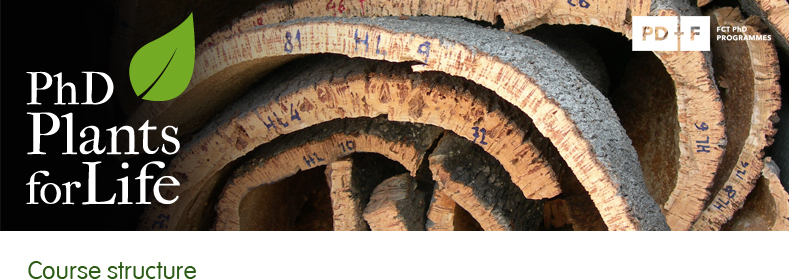| |
|
Eco-Physiology and Plant Interactions
Coordinators
Paula Duque
Tiago Lourenço
Objectives
The overall goal of this curricular unit is to review and integrate the current knowledge on the physiological processes underlying the complex interactions between terrestrial plants and their environment. In particular, the course provides an overview of the functional responses influencing the growth, survival, adaptation and evolution
of plants in their environmental context. The mechanisms governing these fundamental responses are examined at various levels, from the molecular and biochemical aspects to the functioning of the intact plant. Particular emphasis is placed on the impact of different biotic or abiotic factors and on the plant processes taking place
during the immediate response, acclimation, and adaptation to stress.
Students are expected to develop a critical understanding of the key physiological processes affecting plant growth and development in the natural environment and acquire basic skills in plant experimental research.
Syllabus
I. Plants and environment
• Carbon, nutrient and water balances;
• Plant-environment interactions;
• Plant production and stress;
• Methods in Ecophysiology
II. Abiotic interactions
• Water stress (water deficit, flooding, salinity);
• Temperature stress (chilling, freezing, high temperature);
• Light stress (photoinhibition and photooxidation, UV light);
• Pollution agents (CO2, ozone, heavy metals);
• Stress evaluation and screening for tolerance;
• Cross-talk in plant stress responses
III. Biotic interactions
• Beneficial interactions (mycorrhiza, nodulating bacteria);
• Biotic stress (parasitic plants, pests and diseases);
• Host-parasite interactions;
• Control of biotic interactions (anatomical and chemical barriers, molecular/genetic approach and living organisms);
• Stress evaluation and screening for resistance
Evaluation
The evaluation will be based on the interest and activity demonstrated by the student during the lectures, seminars and workshops. Tutorials will also allow assessing whether the student understood the basic principles and
concepts, was able to explore questions, analyze and solve scientific problems, and engage in active learning. |




